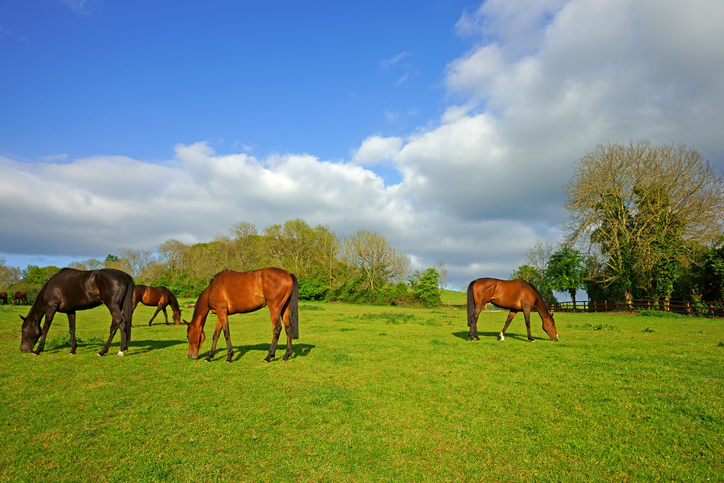Laura Czapski, Legal Director in our Agriculture & Rural Land team considers planning considerations when grazing horses.
Horses can be dangerous, as can the arrangements for keeping them!
The agricultural use of land and the equestrian use of land are two quite different things, as any planning enforcement officer will quickly explain to you. Grazing agreements, farm business tenancies and protected business tenancies are all quite different too, as any agricultural lawyer will tell you.
“Grazing” horses on land is classified as agricultural from a planning use perspective even where the horses are recreational rather than working horses. The key is that the horses are only on the land for the primary purpose of “grazing.” If the horses are given supplemental feed, kept in a field for exercise, covered with rugs or if they are provided with a field shelter then the predominant use of the land may no longer be regarded as agricultural. Any non-agricultural use will require planning permission for change of use although temporary use (up to 28 days a year) for events such as gymkhanas and cross-country competitions can be held on agricultural land without the need for planning permission.
If horses are to be kept for grazing, then a grazing agreement or licence should be entered into. If the grazing arrangement has any link to a trade or business then provided it just relates to genuine grazing of an agricultural nature then a farm business tenancy is likely to arise but where there is any non-agricultural element along the lines of the examples outlined above then the arrangement may fall within the definition of a business tenancy within the Landlord and Tenant Act 1954 which affords a degree of protection (security of tenure) for the occupier. It is very easy to document a grazing arrangement in the wrong way.
Cases will turn on their facts, and problems with the local planning authority or with protected tenancies can prove very costly. Be aware and seek advice.
If you would like any more information about grazing horses, please get in touch with a member of our Agriculture and Rural Land team.

